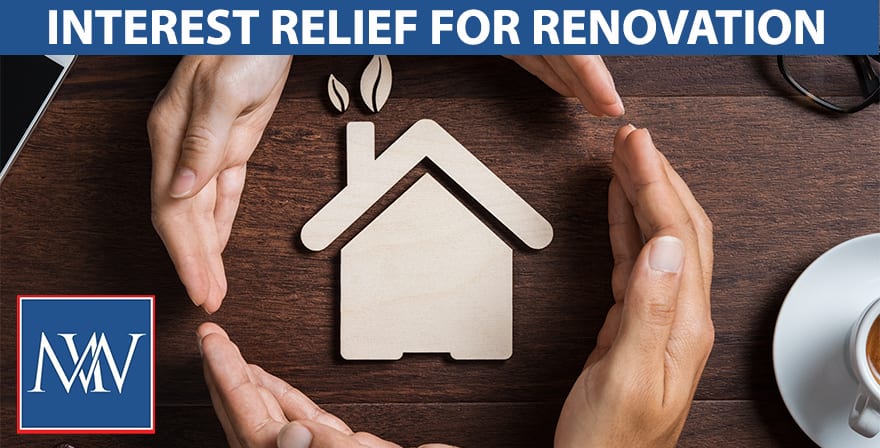
Interest relief for renovation or development costs
Often, when a property is purchased there is work to be done before it can be let out or sold. Where this work is financed by a mortgage or other loan, the way in which and the extent to which relief is available for the interest costs depends whether it falls with the property income or trading income tax rules.
The following case studies illustrate the different approaches.
Case study 1: Buy-to-let investment
Simon buys a property as an investment, with the intention to let it out long term. The property has been neglected and needs doing up before he can put it on the rental market. The property costs £250,000 and Simon has budgeted £40,000 to renovate it. The purchase and refurbishment work are financed with savings of £70,000 and a mortgage of £220,000. Interest on the mortgage is £800 per month.
The purchase completes on 1 May 2018. The renovation work takes six months and the property is let from 1 November 2018. At the time the property is let, it is valued at £280,000.
Under the property income rules interest is allowed as a deduction or tax reduction (as appropriate) to the value of the property when first let. In this case the value of the property when first let (£280,000) is more than the mortgage of £220,000, so relief for the full amount of the interest is allowed in computing the rental profit. For 2018/19, 50% of the interest costs are deductible from the rental income, with relief for the remaining 50% being given as a basic rate tax reduction. For 2019/20, 25% of the interest costs are eligible as a deduction, with relief for the remaining 75% being given as a basic rate tax reduction.
Relief for the interest incurred in the renovation period before the property was first let is available under the pre-commencement provisions. These allow relief to the extent that it would be available had the interest been incurred while the property was let. The interest in the pre-letting period (i.e. that relating to the period from 1 May 2018 to 31 October 2018 of £4,800) is treated as incurred on the day that the property rental business commences, i.e. 1 November 2018.
Case study 2
David also buys a property to do up. However, his intentions are different to Simon in that he wishes to do the property up as quickly as possible and sell at a profit, buying a further property to do up with the proceeds. David is a property developer rather than a landlord and any interest costs incurred in funding the development are deductible under the trading provisions in computing his trading profit. This would be the case regardless of whether David operates as a sole trader or other unincorporated business or forms a company through which to carry out his property development business. Availability of the interest deduction depends on the ‘wholly and exclusively’ rule being satisfied.
Need Accountancy Support?
For information on bespoke training, or if you have any other questions for Makesworth Accountant, please fill in your details below
















 151
151